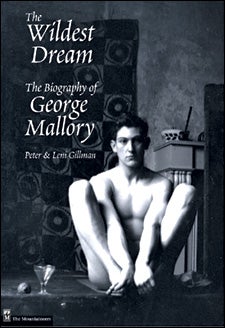The Wildest Dream: The Biography of George Mallory, by Peter & Leni Gillman (2000)
Book Smackdown: şÚÁĎłÔąĎÍř Bios
Tell us your choice for the best adventure biography of all time in our .Mountaineers Books
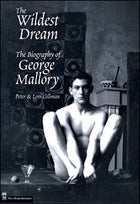
No. 10
George Mallory was so much more than bleached bones and a brief entry in Bartlett’s (“Because it is there”). Handsome and charismatic, he romped around Cambridge with the chic Bloomsbury set before finding his life’s calling on rope in the Alps—and his early end on Everest in 1924. The Gillmans boldly go where few Mallory biographers dare tread, including into the sensitive issue of a rumored early homosexual experience, the authenticity of the Quote—he likely said something more like “Because we are mountaineers”—and odd examples of his adventurous
Shackleton By Roland Huntford (1986)
No. 9
Shackleton
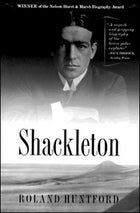
Most readers know the basics from Caroline Alexander’s The Endurance: When Antarctic ice trapped his ship in 1915, Ernest Shackleton led his 27-man crew on an epic two-year journey of survival. But in this massive 774-page work, written more than a decade before Alexander’s bestseller, Roland Huntford goes beyond the 1914–16 expedition to paint Shackleton as an adventure hustler, an unfaithful husband, and a heavy drinker who was often broke and always chasing the next big score. Huntford’s Shackleton is a grand adventurer but not the sharpest tool in the shed—rightly remembered for his leadership on the Endurance but, perhaps kindly, not much else.
Stanley: The Impossible Life of Africa’s Greatest Explorer By Tim Jeal (2007)
No. 8
Yale University Press
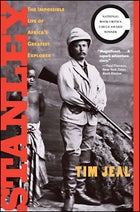
He’s known for laying down the greatest salutation in history—”Dr. Livingstone, I presume?”—but the search for missionary David Livingstone was just one of Sir Henry Morton Stanley‘s exploits. Raised in a British workhouse, he escaped to America at 18, fought in the Civil War (on both sides!), and made himself into a popular journalist. His search for Livingstone was a stunt newsÂpaper assignment that turned into a life’s work. Emboldened by his success, he became one of Africa’s most courageous and ruinous explorers, opening the Congo to Belgian king Leopold II’s cruel colonization. Jeal tries to rescue Stanley’s reputation and half succeeds: Stanley didn’t cause a century of exploitation. He just set it in motion.
The Last Season By Eric Blehm (2006)
No. 7
Harper Perennial
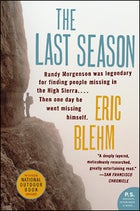
In July 1996, Kings Canyon National Park ranger Randy Morgenson pinned an innocuous note to his tent and went on patrol. He was never seen alive again. Over the next six years, NPS officials considered scenarios including murder, suicide, drowning, and the possibility that Morgenson might have simply walked out of his own life. Though his body was recovered in 2001, the cause of death remains unknown. Blehm didn’t solve the conundrum, but he did turn out a compelling, true wilderness mystery.
Tenzing: Hero of Everest By Ed Douglas (2003)
No. 6
Tenzing bio
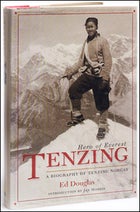
Though Tenzing Norgay wrote two memoirs, neither approaches the breadth and sophistication of Douglas’s biography. Tenzing covers the spectacular rise and slow fall of the great Sherpa climber, whose triumph on Everest with Edmund Hillary made him both a hero and a man doomed to be disappointed by fame. Tenzing’s ascent from illiterate yak herder to conquerer of Everest was one of the greatest boot-strappings of the 20th century. But his struggle to translate his near-godlike status into business success led to drinking and depression. Douglas, the former editor of Britain’s Alpine Journal, combines a lifetime of climbing experience with a deft literary style to craft perhaps the best mountaineering biography ever written.
The Strange Last Voyage of Donald Crowhurst By Nicholas Tomalin and Ron Hall (1970)
No. 5
International Marine/McGraw-Hill
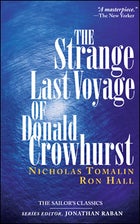
In the fall of 1968, Donald Crowhurst set sail from England in the world’s first singlehanded nonstop round-the-world sailboat race. Although he designed marine navigation devices, Crowhurst was an inexperienced sailor and bluffed his way into the event. Facing the humiliation of failure, he pulled a Rosie Ruiz: He hid in the South Atlantic for weeks, faking radio silence, then proclaimed himself the elapsed-time leader. CrowÂhurst’s boat was found weeks later, adrift in the mid-Atlantic, its captain nowhere in sight. Tomalin and Hall reconstruct Crowhurst’s life, his fatal deception, and his descent into madness.
Into the Wild By Jon Krakauer (1996)
No. 4
Into the Wild
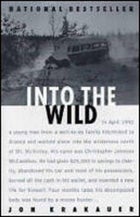 Into the Wild
Into the WildIt’s not a traditional biography, but Krakauer’s account of Chris McCandless‘s grand and tragic adventure has become part of America’s cultural mythology. In 1990, after graduating from college, the 22-year-old Virginian set out on a continental road trip, seeking to free himself from the influence of civilization. He renamed himself Alexander Supertramp, “an aesthetic voyager whose home is the road,” and pushed into the Alaskan outback, determined to live as a modern-day Thoreau. He died trying, done in by toxic wild pea seeds. Krakauer’s retracing of McCandless’s life and death makes this list because it is a biography of every young man who’s ever sought adventure, purity, freedom, and truth.
Marco Polo: From Venice to Xanadu By Laurence Bergreen (2007)
No. 3
Marco Polo bio
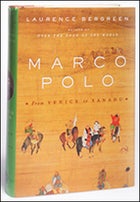
How’s this for adventure? Seventeen-year-old Italian kid accompanies dad to China on camel, hires on as consigliere to Kublai Khan, stays for 17 years, returns home, gets captured in war and thrown in jail, and writes a memoir that stays in print, more or less, for 700 years. That’s Marco Polo‘s story, and biographer Laurence Bergreen tells it masterfully in this Tom Jonesian romp through 13th-century China. Young Marco encounters both pleasures of the flesh (“Take my daughter—please,” says the village headman) and homicidal hosts, marking his as one of the luckiest lives ever lived.
Bruce Chatwin: A Biography By Nicholas Shakespeare (1999)
No. 2
Anchor Books
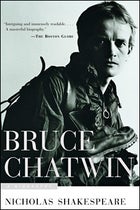
Some say modern adventure travel was invented by Tony and Maureen Wheeler, creators of the Lonely Planet guidebooks. I say the patent belongs to Bruce Chatwin. In classics like The Songlines and In Patagonia, the Brit showed that the sublime was still waiting for anyone with a passport. Shakespeare’s biography reveals the author as ten times the character he portrayed in his own books: a world-class raconteur, incorrigible gossip, and brilliant mimic. Uncomfortable at home, Chatwin embraced the Olde English ethos of global exploration. “I find I can be English and behave like an Englishman,” he said, “only if I’m not here.”
Beyond the Hundredth Meridian: John Wesley Powell and the Second Opening of the West By Wallace Stegner (1954)
No. 1
Penguin Classics
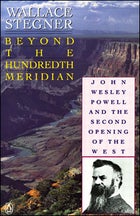
Rarely have subject and biographer so fortuitously met: The great and awful story of John Wesley Powell, the man who mapped the American West, is amplified by the literary dexterity of Stegner, arguably the West’s greatest novelist and environmental advocate. Powell was a one-armed Civil War vet and self-taught naturalist, and his 1869 trip down the Colorado River wasn’t just one of the most storied American journeys of exploration; it turned Powell into the West’s most tragic advocate. He saw the land as an arid desert that needed careful stewardship, but in D.C.’s halls of power his voice was drowned out by profiteers hell-bent on exploitation. Stegner’s book gets this, and so it isn’t merely a biography of the man who mapped the American West. It is the story of the American West, in all its glory, exploitation, and ruination.


